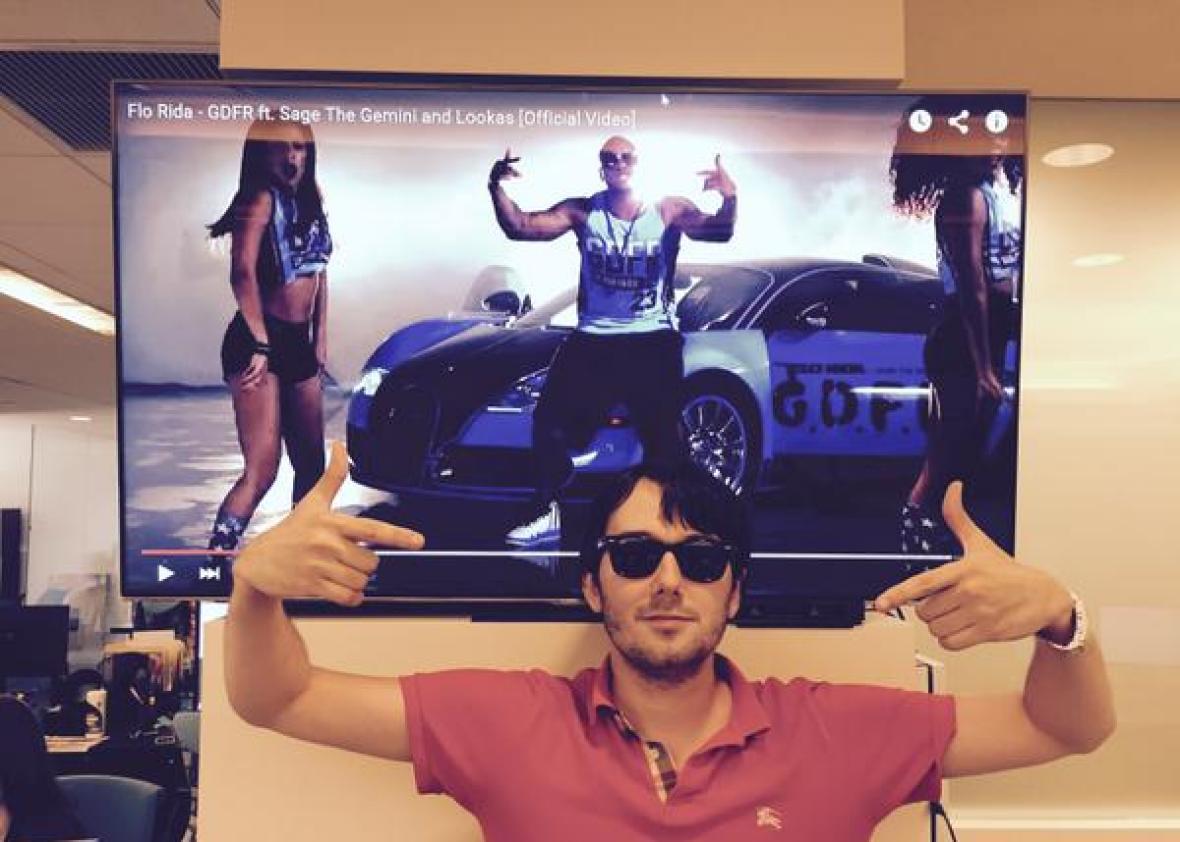This week, the prize for most-hated man in America goes to Martin Shkreli, the rap-lyric-spouting former hedge funder who has found a potentially lucrative and socially useless niche in the business world by buying up the rights to old pharmaceuticals that treat rare diseases, then radically raising their prices. In August, his company, Turing Pharmaceuticals, purchased Daraprim, a 62-year-old drug that treats toxoplasmosis, a potentially deadly parasitic infection affecting infants, AIDS patients, and cancer patients, among others. As the New York Times reported, Turing promptly raised Daraprim’s cost from $13.50 to $750 per pill. Shkreli’s various justifications for the move—that the drug was supposedly underpriced to begin with, and that his company was absolutely, 100 percent going to use its profits to produce better versions of the treatment (even though many doctors didn’t seem to think one was needed)—did little to mute the uproar. Last night, amid all the scrutiny, he budged a bit and said Turing would lower the price, though not by how much.
Assuming his conscience doesn’t send Daraprim’s price all the way back to $13.50 a tablet, Shkreli will be able to get away with his price gouging for a simple reason: Even though the drug’s patents are long-expired, nobody else makes it. Thus, he has an effective monopoly over a life-saving treatment that lacks an alternative. One could argue that this speaks to the fundamental flaws of American oversight of the pharmaceutical industry. While the rest of the developed world uses price controls to keep medication affordable, the U.S. allows drug companies to charge whatever they please, with the hope that once their patents expire, competition from generics will drive down costs. To some slight extent, that’s worked—about 8 out of every 10 prescriptions filled in this country are for generic drugs. But as production has become concentrated in the hands of fewer and fewer manufacturers, the prices of some generics have rapidly risen in recent years. And the costs of some specialty medications, like Daraprim, have skyrocketed.
So, is there anything to be done, short of completely rejiggering American pharmaceutical regulation (which, let’s be honest, isn’t happening any time time soon)? Last year, a group of doctors offered one clever potential solution to this issue in the New England Journal of Medicine. When the price of an unpatented drug shoots up, they argued, the Food and Drug Administration should actively go out and look for another company willing to make a generic version and put it on a fast track through the official approval process. The government already does something similar to deal with drug shortages, which have cropped up more frequently in the past several years, and the idea could also help with cases like Daraprim.
Here’s why: Theoretically, another company could take notice of Shkreli and Turing’s stunt and decide try to make a profit by selling its own generic version of Daraprim for a cheaper price. The problem is it would take a while. Largely thanks to a lack of office funding, the approval process for generic drugs has been slowed by a massive backlog of applications. “Even if a company wanted to enter tomorrow, it would still have to wait three years,” Aaron Kesselheim of Harvard Medical School, who wrote the article with Jonathan Alpern of Regions Hospital in St. Paul, Minnesota, and William Stauffer of the University of Minnesota’s Department of Medicine, told me. By promising to expedite things, though, the government would remove that roadblock, and maybe lure some competition into the market. During our talk, Kesselheim suggested that Washington could also offer other incentives, such as promising to buy some of the newly manufactured drugs through the Veterans Health Administration.*
The biggest hurdle, Kesselheim suggested, could be regulators themselves: “The problem here is the crisis relates to drug costs, and the FDA doesn’t see itself as an agency that gets involved in drug costs.” But, he added, there’s no reason that mindset couldn’t change.
Some experts have suggested that it’s unlikely that another company would try to steal Turing’s market share because the market itself is so small—in 2011, before several price increases, fewer than 13,000 Daraprim prescriptions were filled. Moreover, even if a company were to try to undercut the drug’s current price, that might mean selling it for $300 a pill instead of $750. Hence, they say the only solution to the rising cost of generics, especially for specialty drugs, is more direct government regulation. “Given the size of this market, [encouraging competition] may not be a practical solution,” Alan Sager of Boston University’s School of Public Health said when I asked him about Kesselheim & co.’s proposal. “When we encounter natural monopolies, we regulate. Adam Smith didn’t have just one string on his violin.”
Nonetheless, recruiting generic manufacturers seems like a concept at least worth trying. As of now, companies that manage to corner the market for an obscure but essential old drug are more or less guaranteed a window of obscene profitability. Even if public outrage might dissuade some from trying—see Shkreli’s second thoughts, or the recent case of Rodelis Therapeutics—there’s still every reason to expect some companies will attempt to pull off the trick. But by showing that it’s willing to go out and solicit other players into the market, the government might make gouging helpless cancer and auto-immune disease patients a slightly riskier proposition, and convince investors to put their money elsewhere.
It might not be the perfect fix. But, as George Mason University health policy professor Len Nichols put it to me, “We’re hostage to the reality that we depend on competition to keep prices down.” Until Congress finally does something bolder with pharma regulation, we might as well try to introduce as much competition as we can.
*Correction, Sept. 23, 2015: This post originally misidentified the Veterans Health Administration as the Veterans Administration.
